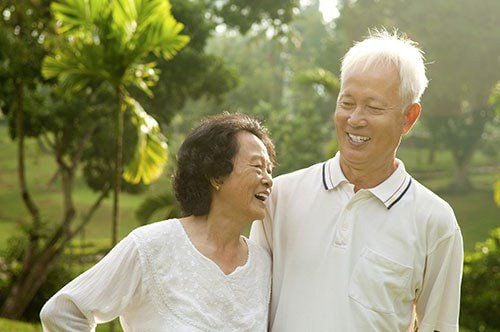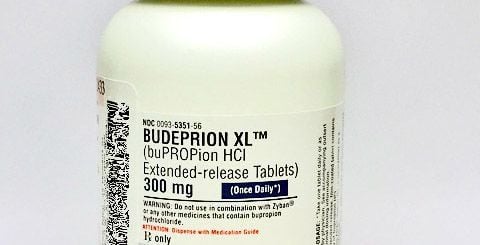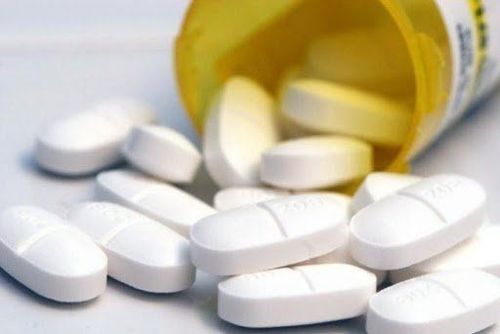This is an automatically translated article.
The article was written by MSc Nguyen Thanh Long - Psychological consultant, Psychological Clinic, Vinmec International General Hospital.Depression in the elderly is a fairly common disease commonly found in lonely elderly people, lack of family care, little social interaction, difficult pressure in life. Treatment and care for older adults with depression does not rely solely on specific medications, but requires a combination of psychotherapy and daily lifestyle changes.
1. How to treat depression in the elderly
1.1. Psychotherapy Psychotherapy is a very important method of treating depression in general and depression in the elderly in particular, especially family therapy. Most of the life and emotional activities of the elderly with depression depend on the family.
1.2. Use of drugs Use of antidepressant drugs in the elderly should be noted:
The dose of antidepressants is usually lower than that of antidepressant drugs in young people Elderly people with weak health are prone to side effects of the drug. follow-up attention. For example: decline in physiological function, change in body composition... Using anti-depressants should pay attention to diseases that elderly patients often suffer from such as: cardiovascular disease, high disease. Blood pressure, liver failure, kidney failure... Some drugs to treat depression in the elderly are used, including:
Tricyclic antidepressants: Tricyclic antidepressants almost all work. Side effects should be done to ensure safety before giving to patients to use. The drug Maprotiline can cause epilepsy side effects, and Amoxapine can cause side effects. MAOIs: When using this type of patient may experience postural hypotension, so it is necessary to pay attention to the patient's activity, the patient may fall. In addition, do not use concomitantly with analgesics and sympathomimetic drugs. Patients with cognitive impairment do not use MAOIs. SSRIs: SSRIs are quite safe and well-tolerated, but some side effects should be noted such as difficulty sleeping, headache, nausea, diarrhea, and irritability. Tianeptine: safe and well tolerated, with few anticholinergic side effects. Patients with heart failure, cirrhosis can use. The drug can be anti-anxiety and does not cause drowsiness. Trazadone: has side effects of drowsiness, lowers blood pressure orthostatic Bupropion: does not cause drowsiness and does not cause orthostatic hypotension but if used in high doses can lead to seizures. ECT: is often used to treat depression in the elderly because of its safety and rapid effect. 1.3. Lifestyle changes Lifestyle changes are an important combination treatment for depression. Things to do include:
Let the patient increase physical activity Help the patient find a hobby or hobby such as: planting trees, reading books, raising fish... so that the patient can relax and have moments of comfort. roof Enhance patient care, concern, ask questions from friends and relatives Have a reasonable diet Rest and get enough sleep.

Thay đổi lối sống giúp tinh thần người bệnh thoải mái hơn
2. What is the most important thing to pay attention to in caring for the elderly with depression?
Care for elderly people with depression needs to be very careful because elderly people often have comorbidities, which can be dangerous to health. The care process should do the following:
The family plays a very important role in the treatment of depression in the elderly. If a loved one is sick, the family member should be around often, take care of and encourage the sick person, and don't let them feel abandoned or lonely. Depression is a psychological disease, so it is necessary to regularly talk and confide in the patient to relieve psychological stress and avoid creating more pressure on the patient. Caring for someone with depression can be exhausting, and family members need to be patient and very gentle. Give the patient adequate nutrition, ensure health. Pay attention to the patient to take the correct dose and prevent the side effects of the drug. When you see a family member showing abnormal signs of depression, they need to be taken to the hospital for examination as soon as possible. Psychological Clinic - Times City International General Hospital is one of the leading prestigious addresses in the treatment of psychological and mental health problems.

Đội ngũ bác sĩ tâm lý của Phòng khám tâm lý - Bệnh viện Đa khoa Quốc tế Vinmec
The medical team at the clinic are all highly qualified, many of whom are lecturers of psychiatry at Hanoi Medical University, capable of implementing psychological tests, intensive psychotherapy, effective support for the treatment of disease.
The clinic has a system of modern equipment, leading facilities in the country will bring the best service to patients, increase treatment efficiency.
Please dial HOTLINE for more information or register for an appointment HERE. Download MyVinmec app to make appointments faster and to manage your bookings easily.













